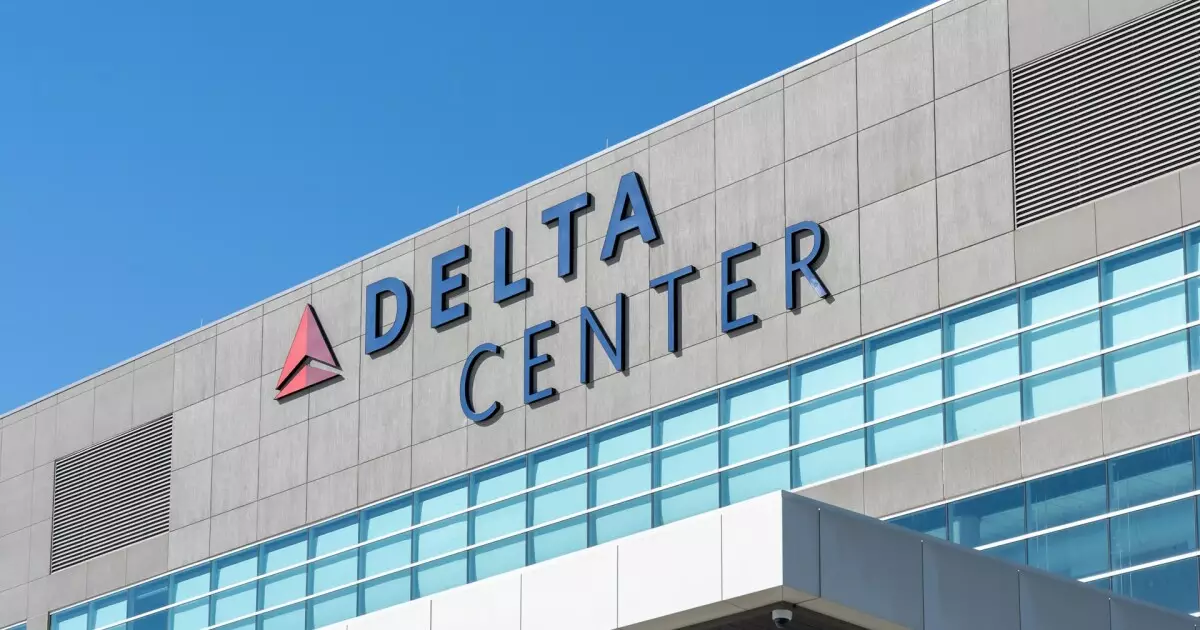Transformational Plans for Salt Lake City: A New Era for Sports and Development

In a groundbreaking decision, Salt Lake City is poised to initiate a major development project that could potentially inject up to $900 million into the local economy. This initiative focuses on the renovation of the Delta Center, home to the Utah Jazz, and the creation of a vibrant downtown district. The Salt Lake City Council’s recent approval allows for substantial bonding via a structured financial framework reliant on an increase in the existing sales tax.
The increase, set at 0.5%, will be added to the current sales tax rate of 7.75%, generating an anticipated revenue of approximately $1.2 billion over a 30-year period. The bond proceeds allocated will see a significant portion directed toward the arena renovations, amounting to $525 million, while another $375 million will be earmarked for developing surrounding entertainment and cultural spaces. This comprehensive financial strategy not only emphasizes the council’s commitment to urban revitalization but also aligns with the state law enacted in 2024, which facilitates such large-scale fiscal endeavors.
While the city council unanimously passed this measure, public reaction has been mixed. There’s a palpable concern among certain residents about the implications of increased taxation and financial risk associated with these bonds. Former officials have even hinted at mobilizing a voter referendum to reassess the viability and public support for such a significant fiscal commitment.
Council Chair Victoria Petro highlighted the necessity for vigilance and community engagement as the project unfolds. She emphasized that despite the ambitious goals, transparency and active monitoring will be crucial components in building trust among constituents. This sentiment mirrors public apprehensions regarding long-term financial obligations and potential impacts on local services.
Impact on Local Sports and Culture
The renovation and development are expected to have profound effects not just on the sports scene but also on the cultural fabric of Salt Lake City. With the acquisition of the NHL’s Arizona Coyotes, which have been rebranded as the Utah Hockey Club, the Delta Center is set to be a dual-sport venue, thus expanding its utility and potential revenue generation. The convergence of these two major sports franchises in one location is anticipated to attract a diverse array of events, bolstering the city’s reputation as a sports destination.
Moreover, the envisioned cultural and entertainment district surrounding the Delta Center aims to enhance the overall vibrancy of downtown Salt Lake City. By providing spaces for concerts, art exhibitions, and various cultural festivities, this redevelopment holds the promise of not only enhancing the local economy but also enriching community interactions.
As Salt Lake City embarks on this ambitious project, the focus will remain on careful implementation and community involvement. The formation of an oversight Revitalization Zone Committee indicates a structured approach to monitor progress and address potential concerns as they arise. This project stands not only as a testament to Salt Lake City’s commitment to rejuvenation but also as a reflection of broader trends in urban development, where blending entertainment, sports, and community spaces creates a cohesive urban experience.
Salt Lake City is on the cusp of a transformative journey that could redefine its landscape, economy, and community engagement. While challenges are sure to arise, the potential benefits could set a new standard for public-private partnerships in urban development.





